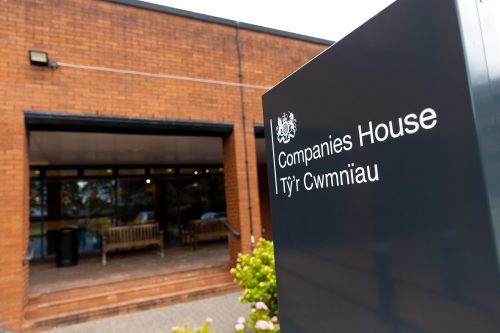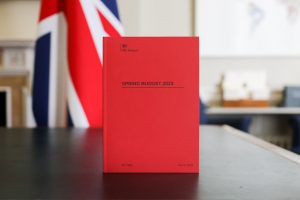Scam cases reveal risks of corporate cuckooing

New powers for Companies House are unlikely to stem frauds where companies and directors have had their details used to front up scams.
As reported on TheBusinessDesk.com yesterday (5 September 2024) in a case at the High Court in Manchester last week (30 August 2024) two companies under the names of DT Care Ltd, registered in Droitwich, Worcestershire, and Amolin Solution Limited, registered in Sedlescombe, East Sussex, were wound up following action brought by investigators from the Insolvency Service.
Fraudsters located in India used the company name to target vulnerable pensioners by falsely claiming their computer had a security issue.
But the scam was enabled by using legitimate company names and registrations to give the veneer of respectability and to use an official company registration to access the UK banking system.
But experts warn that supposed new enforcement powers granted to Companies House still leave law-abiding businesses and consumers woefully unprotected from scammers and fraudsters who can open new companies with hardly any worthwhile checks.
In the latest scam both firms were registered at Companies House without the knowledge of very elderly nominee directors, who’s personal details were used to set up the companies.
One of the directors was a former director of the Federation of Small Businesses.
The Insolvency Service reveals that it “spoke to directors of both companies” who are aged 91 and 88 respectively.
“Investigators concluded that neither actually ran DT Care or Amolin Solution, with the companies thought to have been instead controlled from India,” they said.
Both registered directors were “unable to produce accounting records” for DT Care and Amolin Solution, meaning the Insolvency Service could not establish precisely who controlled the companies and what they claimed to legitimately trade as.
The use of vulnerable people to front a criminal enterprise is known as “cuckooing” but this case seems to show how companies as well as addresses have also been used for criminal purposes.
But while the Insolvency Service has managed to close the companies down, following a High Court application, they are powerless to stop overseas based perpetrators continuing the fraud.
The Official Receiver was appointed as liquidator of both DT Care and Amolin Solution, having previously been appointed as provisional liquidator in early July to stop the companies from further trading and to protect the public.
However, TheBusinessDesk.com has discovered further companies supposedly operated by one of the “directors” of DT Care, which have never filed accounts and appear to be bogus entities.
This information has been passed on to the Insolvency Service.
The details of this case appear to highlight the deficiencies in Companies House as an effective check on criminal and fraudulent activity.
For its part Companies House claims that a set of changes under the Economic Crime and Corporate Transparency Act introduced on 4 March 2024 will give staff there in a newly formed “intelligence hub” the power to tackle economic crime, by making referrals about suspicious activity to law enforcement agencies.
It claims the new measures will lead to improved transparency and more accurate and trusted information as well as greater powers for Companies House to query information, and make stronger checks on company names.
It also has new rules for registered office addresses, and new lawful purpose statements.
In a remarkable claim designed to reassure the public, a statement on the Companies House website says: “Anyone setting up, running, owning or controlling a company in the UK will need to verify their identity.”
There are also supposed to be new requirements to provide additional shareholder information, and restrictions on the use of corporate directors, as well as “more effective investigation and enforcement powers” for Companies House, and new powers to share data with law enforcement agencies and other government departments.
However, experts are sceptical that these measures will be effective.
Professor Richard Murphy, Professor of Accounting Practice at Sheffield University Management School, and a long running critic of failures to address fraud and tax evasion, told TheBusinessDesk.com: “We have company law in the UK but we have no regulator to enforce it. Despite popular belief, that is not the job that Companies House is set up to do. All it does is record the information sent to it, however good or bad it is, and usually without almost any questions being asked.
“If our new government was serious about tackling fraud and abuse in the UK economy, it would set up a new company law regulator to take the rogues out of our economy. Until it does, we’re living in the Wild West where anyone could be taken for a ride at any time, at cost to us all, and also to the honest traders who are brought down by the rogues and cheats.”
Last year Dan Neidle of Tax Policy Associates, another strong voice against fraud and tax avoidance, warned that the planned reforms did nothing to prevent “muppet directors” from either using stolen identities, or proxy people, to set up companies, partly due to cutbacks and increased automation.
“The splendid automation of Companies House procedures, and the fact there are lots of people happy to receive a few hundred quid for clicking buttons, means it’s hard to identify or stop ‘muppet’ directors,” Neidle said.
In the case this week of a corporate cuckooing, the Official Receiver has used the law to close the two fraudulent businesses, and presumably prevent them being used as the vehicle for this scam.
In a celebratory press release the Insolvency Service says it has “worked to protect and preserve assets in the possession or under the control of companies pending the outcome of the winding-up petitions”, but didn’t elaborate on what these were.
The Insolvency Service declined to comment further, or add any detail around this case, telling TheBusinessDesk.com: “The detail is as set out in the release. We have nothing further to add to it.”
In the release David Usher, Chief Investigator at the Insolvency Service, claims to have prevented the two companies from “further objectionable trading” until the winding-up petitions were heard in the High Court.
But while Usher claims that the use of winding-up orders should “send a strong signal to the business community” that the Insolvency Service will use “all the powers at our disposal to shut you down” those powers only work by shutting down an entity used for rogue purposes, they are highly unlikely to deter scammers.









